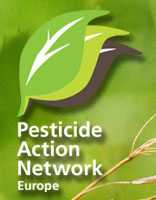In Commission Regulation 33/2008 pesticide producers get a second chance of applying for approval of their pesticide in Europe.
The long process of EU-approval since 1991 came only to an end in 2008 when around 250 substances were approved and around 750 were withdrawn, mostly by industry because of lack of commercial interest. But came it really to an end? And will the 250 soon grow back to 450 or so?
In this long process many debates have been running between Commission and chemical industry, sometimes ending in a compromise and sometimes industry going to Court. On the moment around 60 cases are running in European Court. One of the compromises is Resubmission. On several dozens of substances Commission felt the dossiers were incomplete and they had to propose a non-inclusion. Industry disagreed and threatened with court cases. The compromise was industry gets a second chance to deliver a more complete dossier while their substances could stay on the market for an additional 3 or 4 years. It is a ‘fast track’ procedure with a limited dossier.
This loophole construction turned unfortunately in a big ‘hole’ when industry applied for more than 80 substances, also applications for substances who were regarded as being without chance of getting an inclusion. Many companies jumped of this train of this ‘fast track’ procedure hoping for a mild evaluation or hoping to put pressure on Commission through member states if farmers might be interested to get a banned substance back. 1,3-Dichlorpropene and Methylbromide being examples of chemicals where time is wasted.
Pesticides should all be regulated 12 years after the entering in force of Directive 91/414, so in 2003. Still many are not evaluated 7 years later because of all kinds of artificial constructions. And granted market access all the time while citizens and the environment are exposed to unknown risks.
All 80 substances will be evaluated on the basis of the old tests and old rules of Directive 91/414 and possibly get an approval for 10 years, meaning new tests and new criteria will not be used for a long time. The huge pile of work for DG SANCO, Member states and EFSA also means time is lost which should have been spend on developing new tests and criteria and on implementing new Regulation 1007/2009.
In the world of agriculture loopholes and backdoors are major routes for allowing use of pesticides. A provision in Directive 91/414 allows use of illegal pesticides for 120 days (Art.8.2) in case of emergency. The use of this provision recently exploded when Member States massively started copying this ‘innovation’ of a few Member States.
Additionally “essential use” is used when a substance is banned but Member States like to keep it on the market. This construction is also used in some member states allowing ‘essential use” for minor crops when industry doesn’t want to pay for an authorisation for a minor crops. Provisional use is another loophole, allowing Member States to use an entire new pesticide while it is not yet approved in Europe, on condition the dossier of applicant is complete.
Useful information



